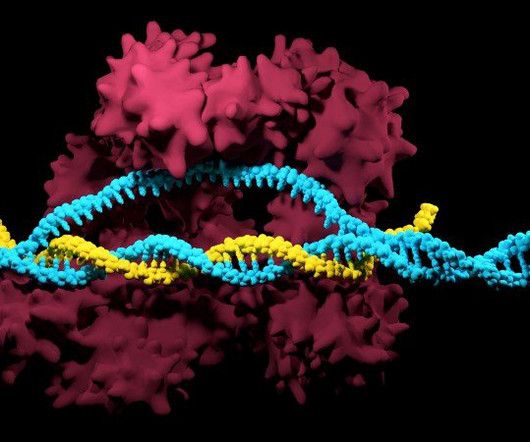New CRISPR-Based Tool Called PASTE Gene Editing Inserts Large DNA Sequences at Desired Sites
XTalks
DECEMBER 14, 2022
Expanding upon the CRISPR-Cas9 gene editing system, researchers at MIT have designed a new technique called PASTE gene editing that can cut out defective genes and replace them with new genes in a safer and more efficient way. The PASTE gene editing technique was recently published in Nature Biotechnology.













Let's personalize your content